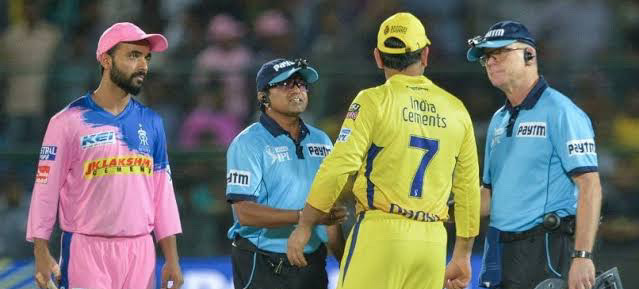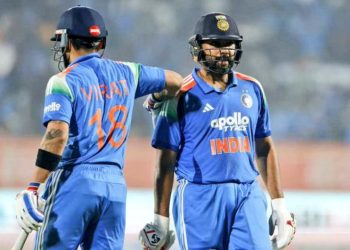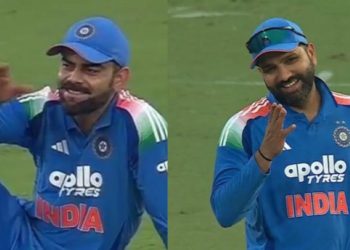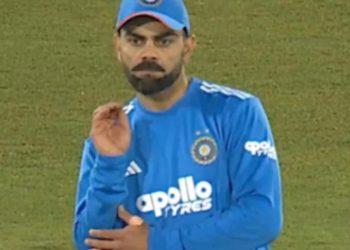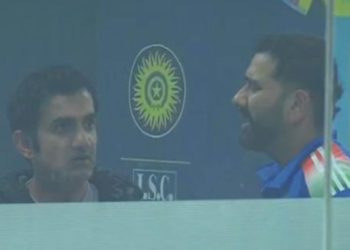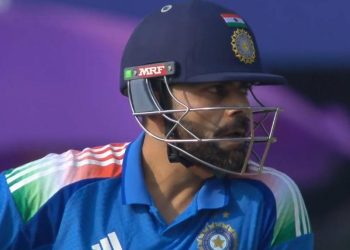The countdown on the timer gets even more exciting, as India readies itself for the 14th edition of the Indian Premier League (IPL). The ‘swaggy’ mega-tournament is all set to kick off from 9 April, with Virat Kohli’s Royal Challengers Bangalore locking horns against defending champs Mumbai Indians. Owing to the precarious COVID-19 situation in the country, IPL 2021 will be played behind closed doors in a quasi-caravan format. The one-and-a-half-month-long tourney will span across the cities of Mumbai, Kolkata, Chennai, Bengaluru, New Delhi, and Ahmedabad.
However, even with the absence of spectators from stadiums, the tournament organizers have ensured utmost entertainment for work-from-home fans. More so, on the technical and textbook aspects of the game. You see, in recent years, the Board of Control for Cricket in India (BCCI) has unveiled a set of novel rules before each edition to improve the grandeur of the season.
And it hasn’t been any different this time around as well; with the BCCI and the IPL Governing Council making some big decisions ahead of IPL 14. Many of them have been inspired by the events of the recently concluded India-England home series. A few others, however, are a bit more ingenious in their own right. So what exactly are these new rules?
No soft signal
Arguably the biggest rule change ahead of the upcoming season is that soft-signal has been discontinued. This change directly reflects itself in Appendix D, clause 2.2.2 of the IPL’s playing conditions.
A major reason behind implementing this new rule stems from Virat Kohli’s recent observations on the matter. Following a controversial dismissal of Suryakumar Yadav in the 5th T20I against England, the India captain made his disapproval of the soft-signal system very clear.
Kohli opined that with third umpires having access to high-quality video footage these days, an on-field soft-signal decision only complicates the decision-making process. The BCCI seems to agree with Kohli’s reasoning, which is why they decided to do away with the incumbent rule. As per the new rule, the third umpire’s verdict will be solely responsible in a tricky match situation.
Short-run review
The second newly implemented also vests some extra bit of power at the third umpire’s possession. IPL 2020 saw the Punjab Kings (then Kings XI Punjab) lose to the Delhi Capitals in a nail-biting super-over- even though the match shouldn’t have got to that stage in the first place!
An incorrect short-run appeal by the on-field umpires led to Punjab unfairly falling one-run short from their original target. The matter stirred many of the Punjab franchise’s stakeholders and even forced them to lodge an official complaint- albeit with no success.
To avoid such situations from repeating in the future, the new rulebook for IPL 2021 accords short-run monitoring duties directly to the third umpire. Additionally, they will be able to overturn any incorrect short-run related decisions from the on-field decision-makers.
Stricter time durations
Over the years, the IPL has provided the fanbase with a large number of exciting nail-biters; but that’s not to say that all of them should’ve been necessarily played out that way. The fielding team’s captain is often unsure about the allotted time duration for bowling 20 overs, leading to unnecessarily delayed and long-drawn matches.
In a bid to improve this situation, the IPL 2021 rules clearly dictate that each innings- including the final 20th over- need to be finished with 90 minutes. Failure to do so will result in heavy fines and even likely suspensions for the accused captain.
While this rule is a bit harsh on the players, it will help time-bound fans plan out their game-watching schedules more efficiently. Likewise, a formal 90-minute acknowledgement will help young captains in better managing over-rates.
No ball and super-over rules
The final rule change deals with providing more clarity on situations involving no-ball and super-overs. The new-and-improved rules state that the third umpire has the right to overturn wrong no-ball calls made by the on-field staff.
Additionally, waist-length no balls- something that the on-field umpires previously had a verdict over- will now also be addressed by off-field staff. Not only will this better help with resolving contentious overstepping issues, but the on-field umpires will be able to better concentrate on deciding wides and LBW-based situations.
Finally, under the new IPL rules, in case an uninterrupted game ends with multiple super-overs; tiebreakers can go on till a maximum after the regular match. If a game exceeds even this period, then both teams will have to share one-point apiece.
